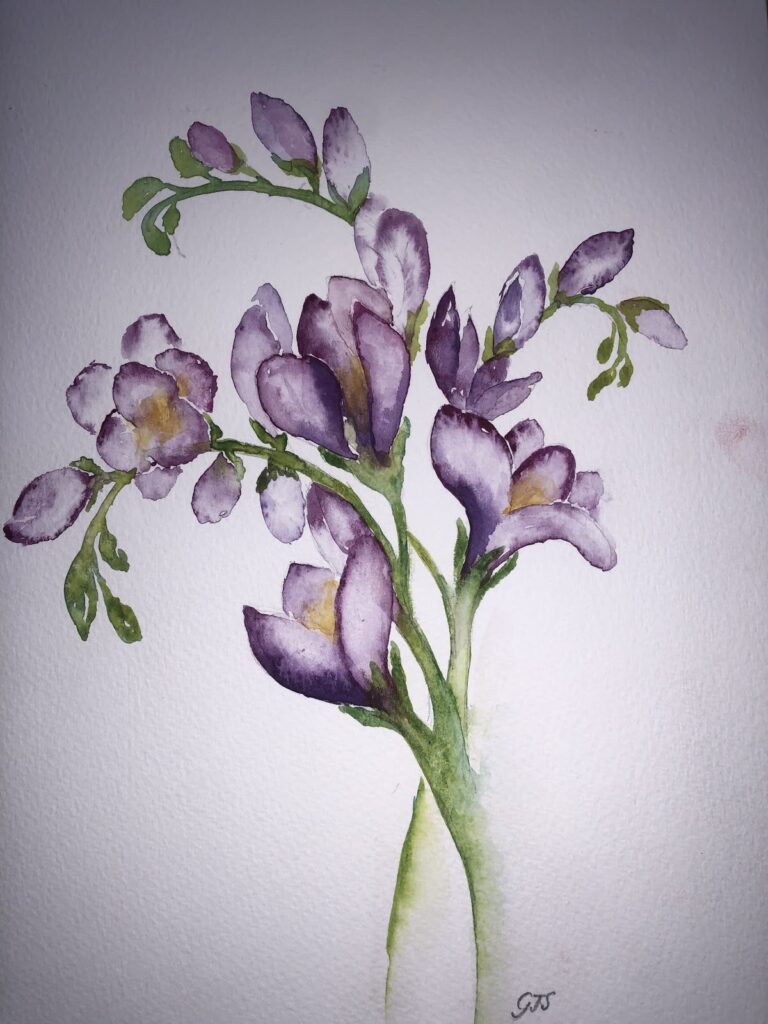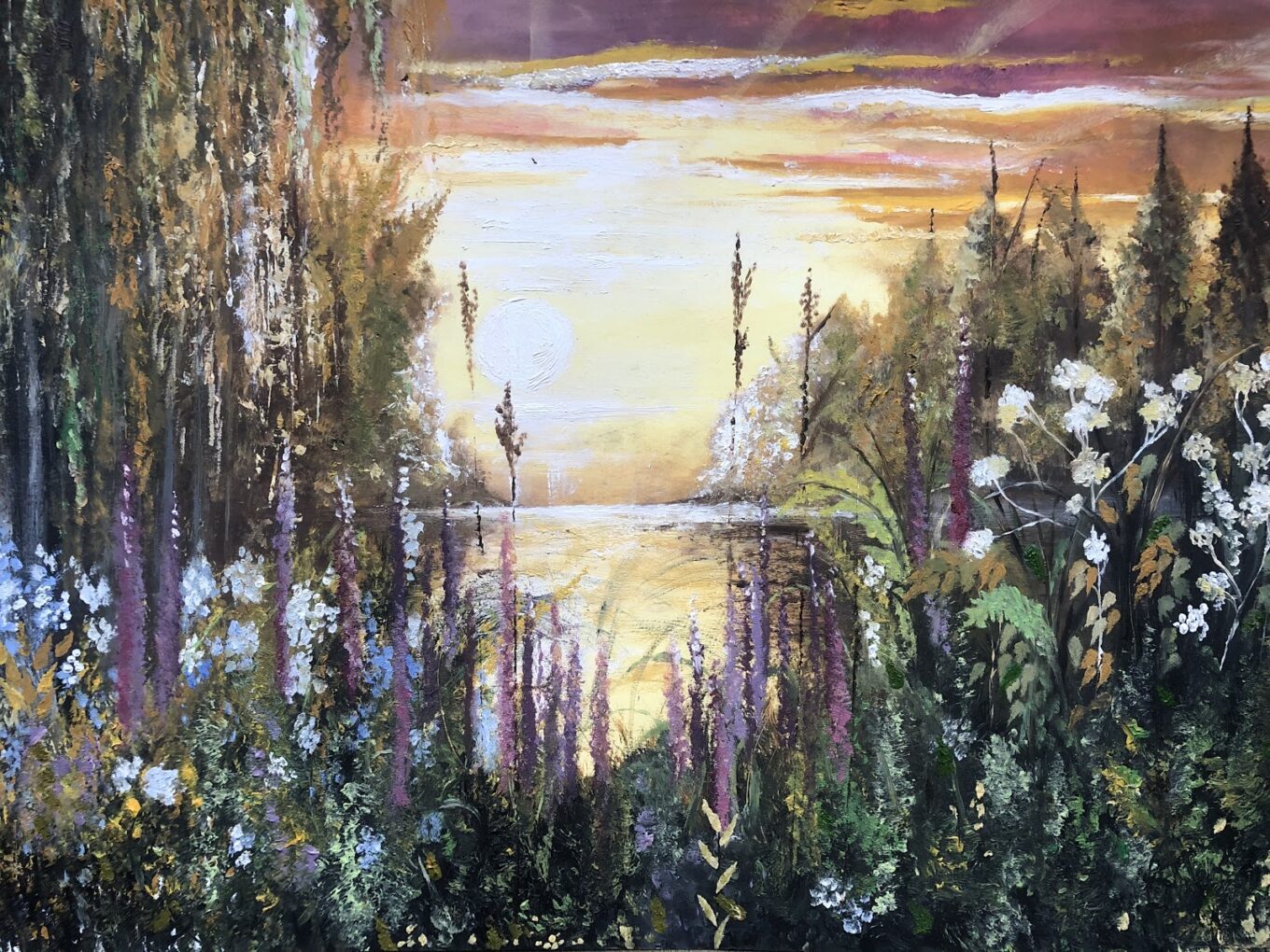BRONTE HEATH considers our shifting conceptions of time and space as she reflects on a London nature reserve.
I am spending my day off writing. Why? Is it because I am afraid of doing nothing – because, as Zadie Smith puts it in her pocket-sized book Intimations, writing ‘is something to do’? The first lockdown sent many of us into a frenzy of productivity. With Shakespeare’s lockdown accomplishment of King Lear casting a shadow over us, we wrote, drew, advocated, read, cooked, cleaned, refurbished, ran, cycled, meditated; we did stuff to pass the time. I did as many vinyasa flows as would fit in thirty minutes, three days a week. This came between another forty-five minutes doing this, and ninety doing that.
I have recently moved, and as is common with any relocation, I have stumbled across a new space: a nature reserve. It lies just off a main road, a small protected haven amongst many others in London. A camouflaged ranger defends squirrels and un-littered paths, a humble steward to nature, a smiling and friendly man. Once in the nature reserve, passing another human can feel unfamiliarly intimate. A few times, I have laughed to myself, thinking about how I instinctively lowered my head or held my gaze ahead against oncoming eyes. Self-conscious, without any obvious need to be there, our selves seem to brush closer to the surface; without this outer layer of purpose, our likes, preferences and choices reveal themselves. I look down because I can be seen here.
The quirk of the nature reserve is that it doesn’t lead anywhere. It is not a passage or a route to another destination. It is a space that leads to nowhere; in fact, it is a circle that loops around, backing onto the train tracks and then rejoining the road by an exit that is also the entrance. Walking around, I cannot help but think of Ross Gay’s essay ‘Loitering is Delightful’. He explores society’s strict categorisation of loitering, far away from productivity or consumption, considered an almost criminal act that is identified more easily ‘the darker your skin’ is. This concept of ‘loitering’ maps perfectly onto this meandering walk that I settle into, as I move off the road and ahead into nowhere.
I walk out of the nature reserve and rejoin the road and society, cautious not to catch eyes with anyone on my exit, one of the most vulnerable parts of the journey. Further down the road, I pass two men. Since moving, I have passed these two men with their van and equipment most days. They work on my road. The back of their van advertises ‘more space’. They work for a company that creates more space within the space you have, in the form of extensions, basements and loft conversions. Their income relies on the consumption of space. We give our time to work to afford ‘time off’; we fill our lives with work, family and hobbies with the hope that we can buy more space, slot more rooms in to accommodate our busy and overflowing lives.
The Latin origin of reserve is ‘reservare’, meaning to ‘keep back’. Nature reserves have to be protected, their outlines traced, against the onslaught of more constructive space and time. To step off the road and into the nature reserve feels exactly like that: to ‘keep back’, to not move forward; to go around in circles; to maybe go backwards, if you get lost. It’s funny that ‘uncultivated’ is defined by Oxford Languages as both land that is ‘not grown for crops’ and as a person who is ‘not highly educated’. Dropping commitments and rules at the gate, we decide to go in. It is most definitely not a requirement. To walk past it is to not know you have missed anything. Walking around it, laughing, I think of Zadie Smith laughing, watching as those who are not deemed as ‘essential workers’ begin to trepidatiously enter her room, the artist’s room, where time is expansive and the perennial problem is ‘what to do with it’. Walking around the nature reserve, the humour makes me feel human – and part of being human is, as Gay delights, ‘taking one’s time’. There is a vulnerability, and perhaps a joy, in not going anywhere.
The challenge is to not succumb to the same anxiety faced by every artist, the fear that what we create will not be good enough, will not be worthwhile. The concern that how we write, read, paint, dance, does not have value. I think that Smith is conscious of this challenge, and Gay transcended it. The neat precision of the reserve ensures that it fits into the area, literally rubbing up against the train tracks on one side and housing flats on the other. The time and space we need, we crave, to write or paint, can be decanted through the very process of creating it: in Smith’s words, ‘you carve it out, the time you need, after much anxiety and debate, and get into the separate space and look between your hands and there it is – nothing’. The temptation to use our hard-earned, valuable time to buy and create neatly packaged space to do more of what we love, can move us away from the doing itself. Perhaps it is part of the running away from it. Enjoying the nature reserve can lose its shimmer if it acts as a hand-crafted piece of a puzzle that reveals a treasure map. In a society that survives upon consumption, creation and yield, space and time are not spared. If you don’t find the treasure, was it worth it? Or better yet, if there never was a shiny pot of gold to be retrieved, would you go in?
Yet we are so accustomed to this. That’s how we know time. Hence, the time and space forced upon us by lockdown were uninvited, unstructured and uncomfortable. Smith watched as for many, lockdown opened the same door she enters most days, a door to a cliff edge; her insides warming with the heat of many bodies inhabiting the room of the artist’s ‘manic desire to make or grow or do “something”’. The open expanse of time, borderless and overwhelming, was not earned or oozing with profitable options, as so often is ‘time well spent’.
Exiting the nature reserve, circling back onto the path that brings me to the entrance, I wonder: why did I choose to enter? Sitting here, I ask: why am I writing on my day off? Off, on, in, out, with, without: I don’t care! I’m writing because it is how I do my time, and I’m going to the reserve because I like to forget where I’m going. In a world where loitering, reserves, days off, baking without intending to sell, are quite literally annexed from value; it is so difficult to not impregnate what you love with time and productivity – to not squeeze it dry of the enjoyment that magnetised you to it in the first place. I sat down to write this and, as I unravelled, I watched responsibility, akin to management, slowly go quiet to leave room for my thoughts. The humbling enjoyment of loitering, which means taking your time to do something you love, could just be productive after all.

Feature image source: Tess Heath





